Abraham Verghese has said, “Travel expands the mind and loosens the bowels.” But travel can also expose travelers to a host of other risks, especially infectious diseases. Preparation for a trip, especially when international borders are being crossed, should include indicated vaccinations to prevent diseases.
This article is intended to be a brief overview of vaccines administered before travel. If you’re planning extensive travel, especially internationally, it’s highly recommended that you consult a specialist in travel medicine/travel health for comprehensive information on how to keep safe on your trip. The Resources section of this article offers tips on how to find travel-related information and a provider.
Vaccines for travel can be summarized by the “Three R’s”:
* Routine
* Recommended
* Required
ROUTINE
Routine vaccines are those that are recommended in the United States by the Advisory Committee on Immunization Practices of the Centers for Disease Control (CDC). These recommendations may differ somewhat in other countries and are generally put forth by national health authorities in each country. All travelers should be current on these vaccines before travel. The full dosing schedules for pediatrics and adults can be seen in the references.
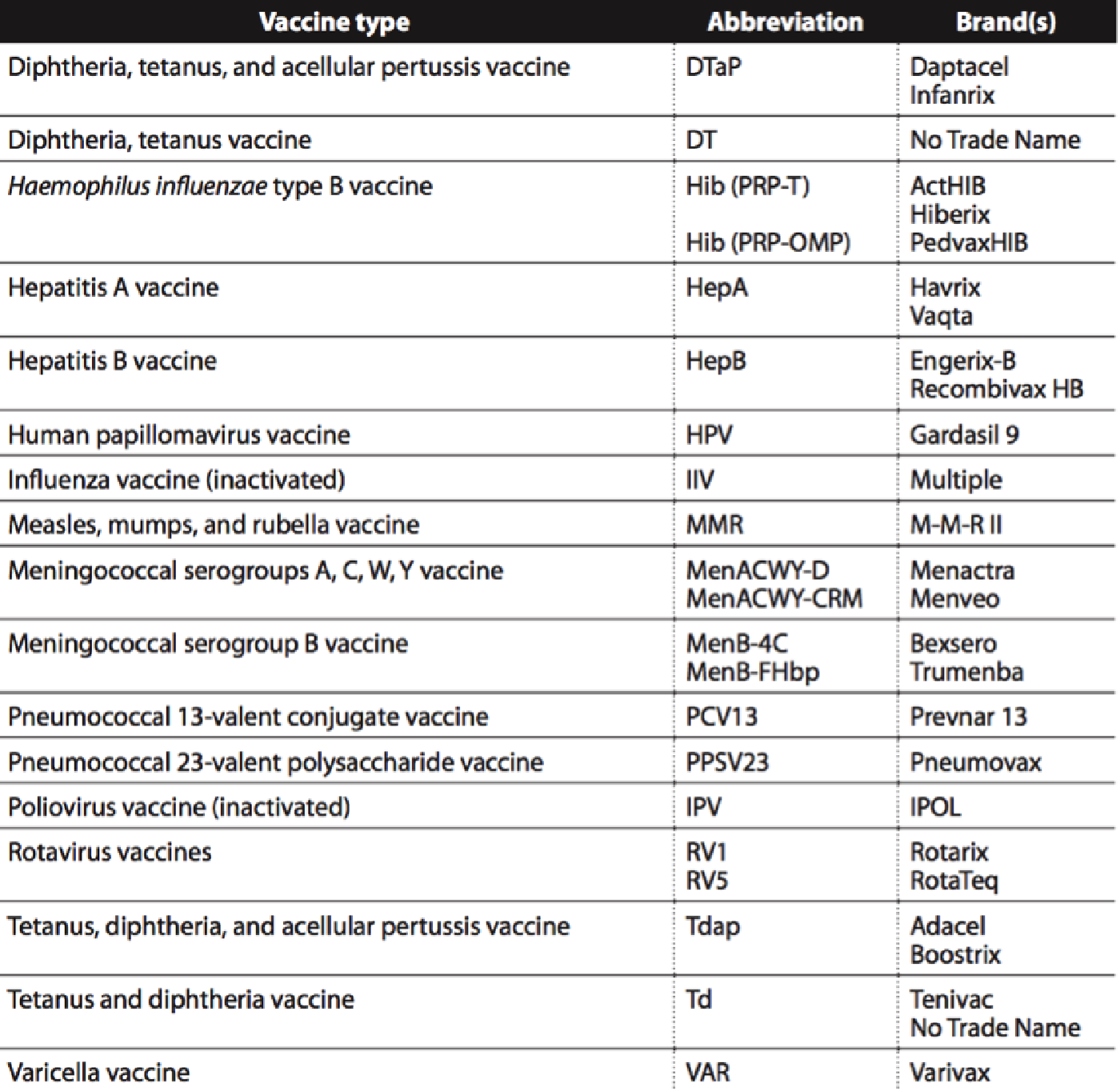
Routine Childhood Vaccines
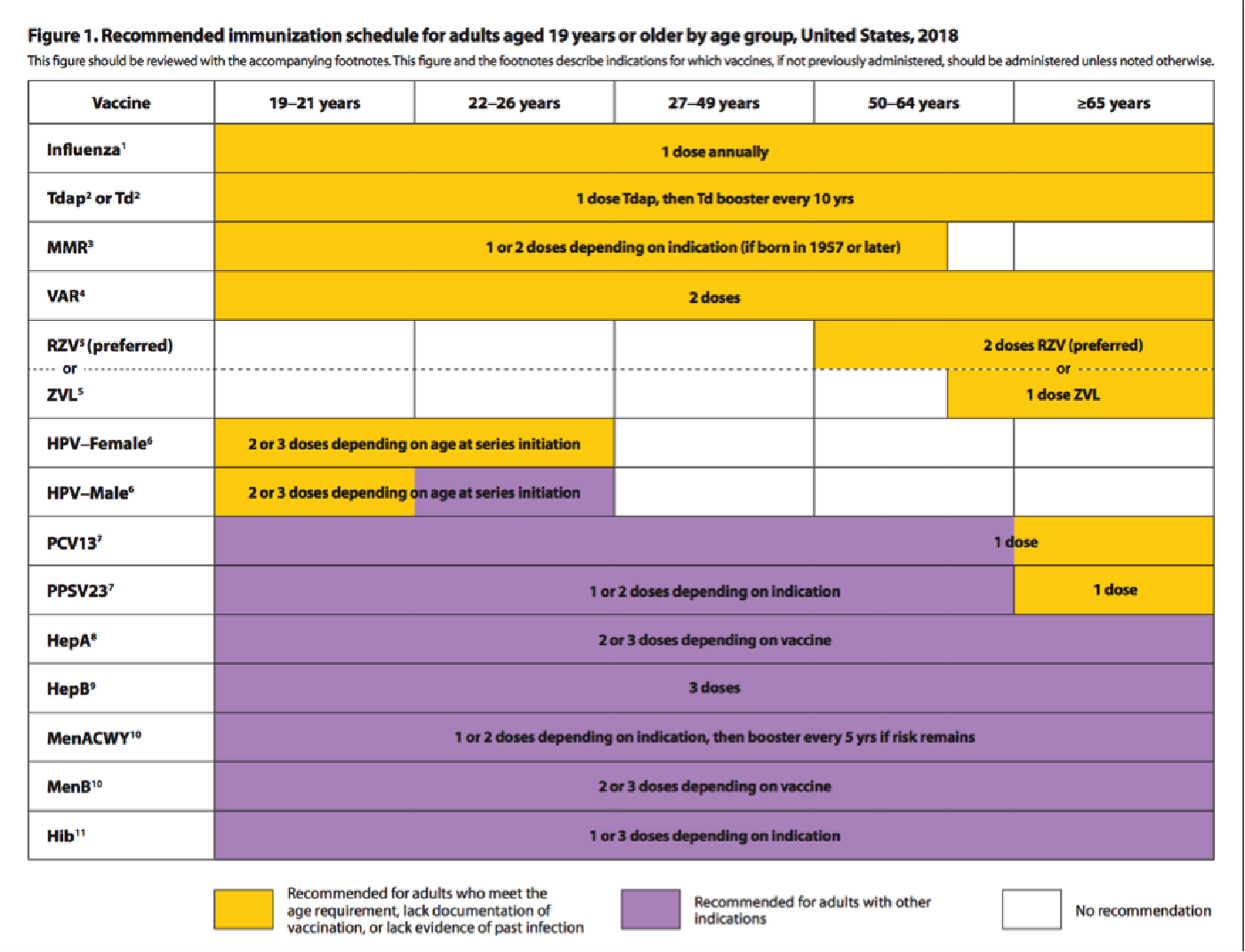
Routine Adult (>19 years) Vaccines | RZV=recombinant zoster vaccine; ZVL=zoster vaccine live
RECOMMENDED
There are a host of vaccines that are recommended for travel. But first, several things need to be considered before the decision is made about which vaccines are needed. These R’s are:
Regions
At any given moment, travel around the world is occurring at a staggering rate. More tourist travel generally occurs in the summer months. However, summer in the Southern Hemisphere is six months from that in the Northern Hemisphere, so travel happens in most regions of the world, all of the time.
The graphic below depicts the current number of planes flying all over the world (on the date when accessed). One site has estimated that 36.8 million flights occurred in 2017, with the number rising every year.
In addition to planes, travel also occurs by trains, ships/boats, cars, and other conveyances. The regions of the world where the traveler is visiting determines which vaccines should be administered, but vaccine choice also depends on the reasons why a person is traveling.

Source: www.flightradar24.com (accessed 5/24/18)
Reasons
The table below lists a multitude of reasons why people travel.
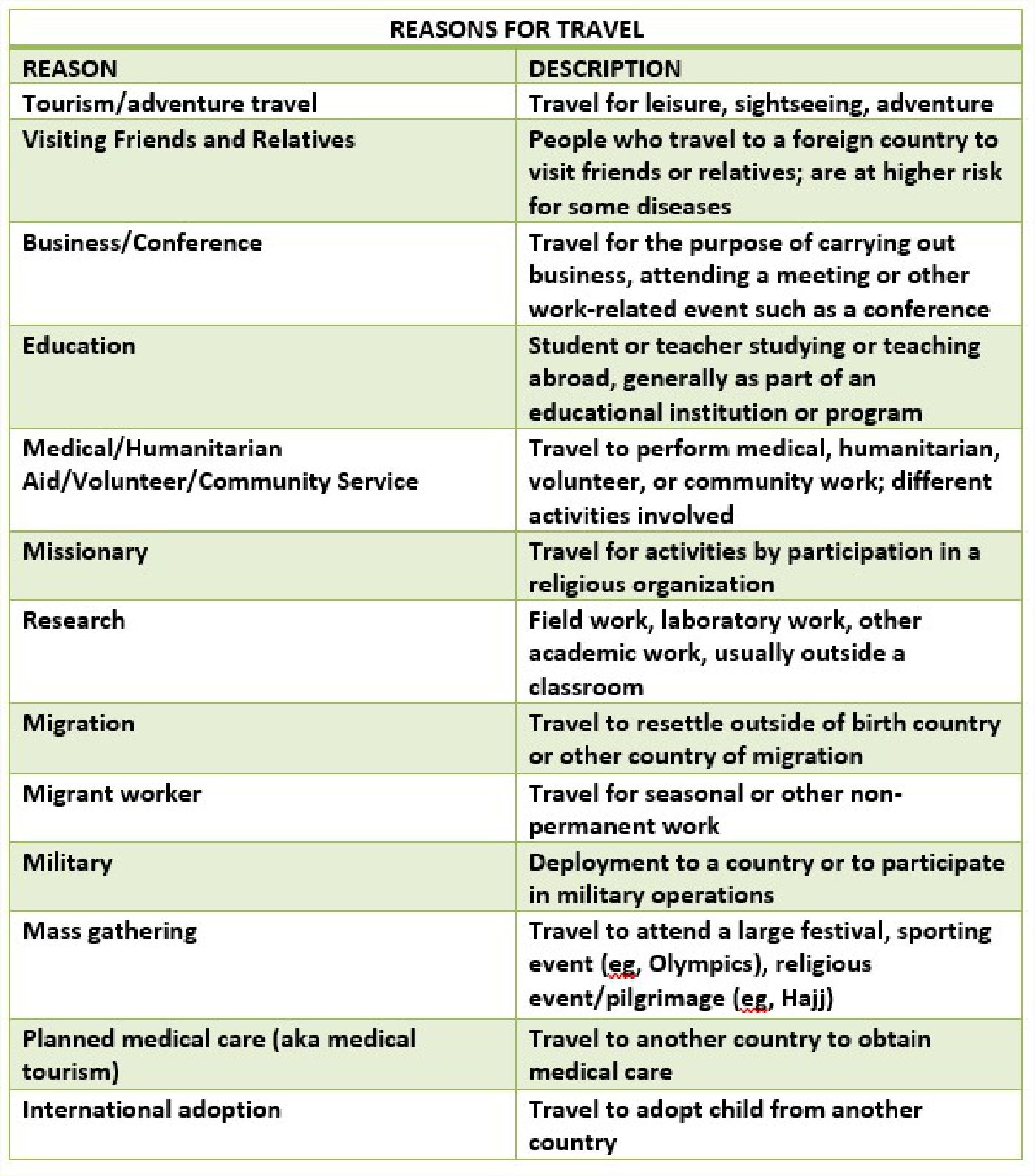
Adapted from: Harvey K, Esposito DH, Han P, Kozarsky P, Freedman DO, Plier DA, Sotir MJ; Centers for Disease Control and Prevention (CDC). Surveillance for travel-related disease —GeoSentinel Surveillance System, United States, 1997–2011. MMWR Surveill Summ. 2013 Jul 19; 62:1–23.
Risks
Putting together regions and reasons for travel, the risks of being exposed to a vaccine-preventable infectious disease can be assessed, taking into account the activity being undertaken and possible exposures with that activity. The table below lists activity/exposure, infectious disease, regions where the risk exists, and vaccines that are recommended for travel.

www.who.int/ith/mode_of-travel/communicable_diseases/en
www.who.int/ith/mode_of-travel/tcd_aircraft/en
https://wwwnc.cdc.gov/travel/diseases/
YELLOW FEVER: AREAS OF RISK
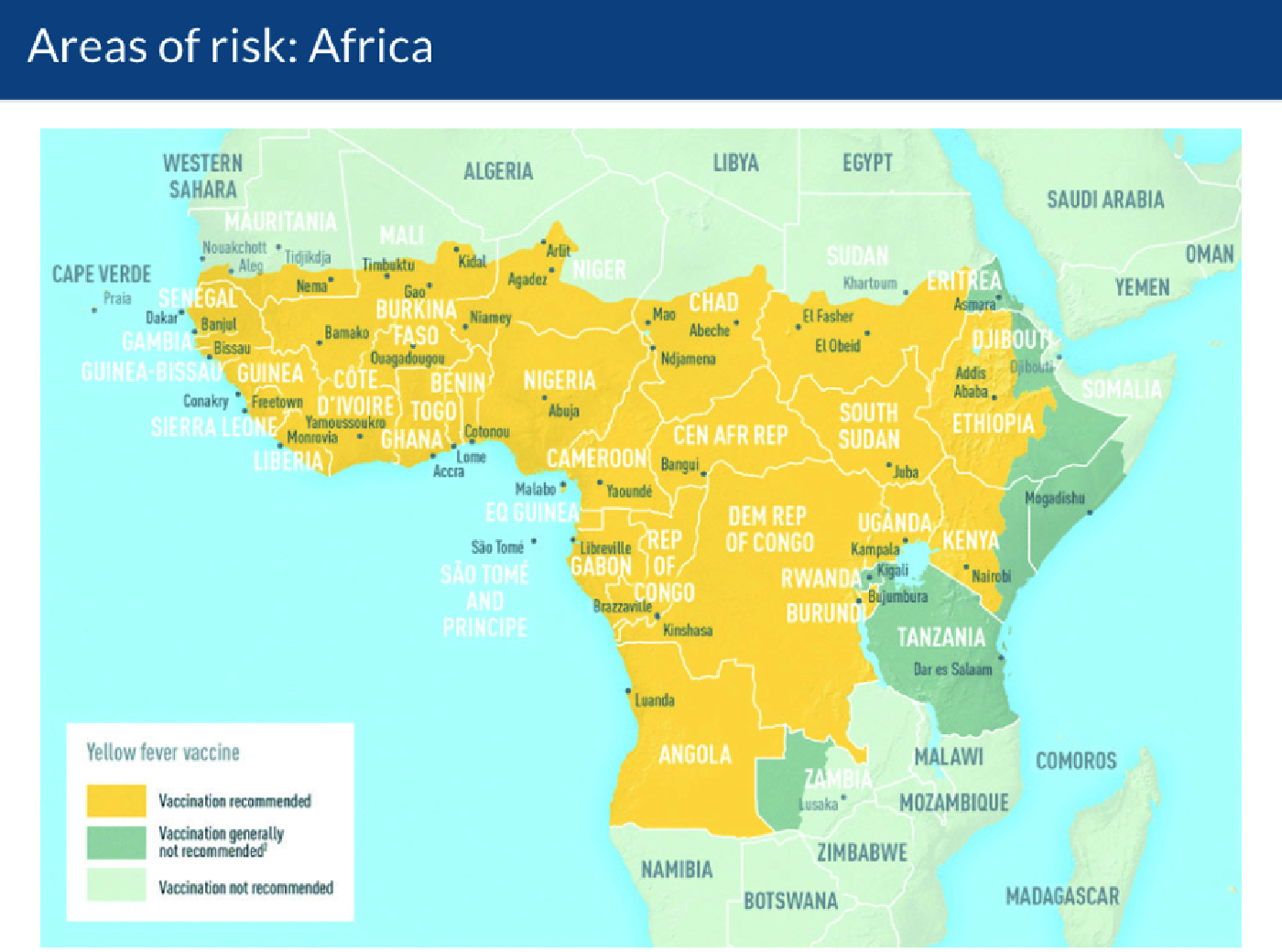
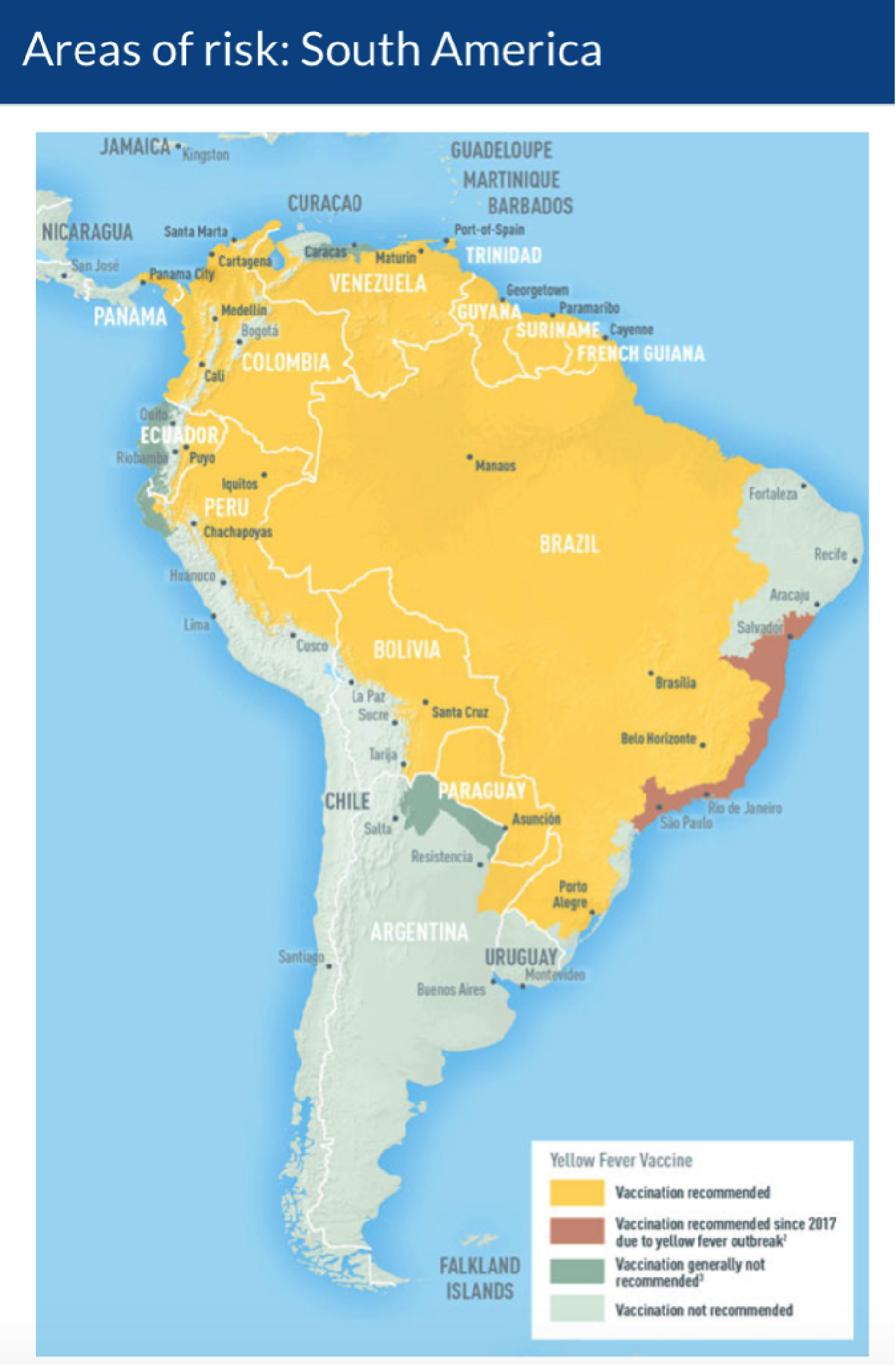
https://www.cdc.gov/yellowfever/maps/index.html.
Required
There are three vaccines that are required for travel to or in certain countries: yellow fever, polio, and meningococcus. Proof of yellow fever vaccination is required by some countries before a traveler can even enter the country. Some other countries require proof of vaccination only if travelers have been in a risk area. The World Health Organization lists every country and their yellow fever requirements.
Recipients of the yellow fever vaccine are given an International Certificate of Vaccination or Prophylaxis (ICVP), or yellow card. This card must be carried during travel. Other vaccines administered during a travel visit can also be entered on the yellow card by the provider.
With regard to polio vaccine, if travel occurs in one of the following countries for more than four weeks, when the country is exited the government may require proof of vaccination: Afghanistan, Burma (Myanmar), Guinea, Laos, Madagascar, Nigeria, Pakistan, and Ukraine (this list may change).
The Ministry of Health of the Kingdom of Saudi Arabia requires receipt of a tetravalent meningococcal vaccine (ACYW135) in visitors arriving for Umrah, Hajj or for seasonal work in Hajj zones.
A Few More R’s:
A few more things to consider about travel vaccines are:
Regimen
Some vaccines need to be given with adequate time for development of immunity before travel. For example, the CDC recommends that the yellow fever vaccine be administered at least 10 days before travel. Polio and meningococcal vaccines also should be administered at least 10 days before travel to countries that require these vaccines.
Most vaccines can be administered at the same time at the same visit (this could mean a number of needle sticks, especially if routine vaccines need some catching up). Some vaccines are available in a combined form (e.g., hepatitis A/hepatitis B), so an extra stick may be avoided when it’s appropriate to give the combination. Sometimes a missed or late dose of a vaccine in a series does not mean the entire series needs to be started over; consult with your travel medicine provider.
Route
Most vaccines are administered intramuscularly, although yellow fever vaccine is administered subcutaneously. Polio vaccine is intramuscular or subcutaneous, cholera is an oral vaccine, and typhoid is oral or intramuscular.
The table below from the CDC Yellow Book lists the recommended travel vaccines: